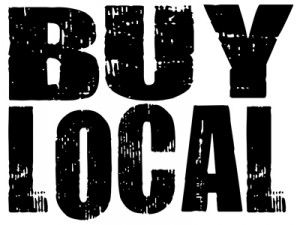Our China lawyers have done quite a lot of work for medical device makers and other companies that supply product and services to Chinese hospitals and we have always told those companies the following:
China hospitals are under considerable, sometimes intense, government pressure to buy local, but in the end, they generally do want the best product at the cheapest price. What this means is that if your product is truly the best and the cheapest product by a wide margin you will probably get the sale. But what this also means is that if your product is just marginally better than a Chinese competitor product and your product is a little bit more expensive you may not get the sale.
What can you do to increase your chances of making the sale? Try to look more local.
What does it mean to "look local"? This means the procedure for the sale to the Chinese hospital must look the same as a purchase from a Chinese manufacturer. The more the sale appears to be domestic, the better your chance of making the sale. This means the purchase must be denominated in RMB and the purchase must be made from a Chinese company. If you force the hospital to pay in dollars for a direct purchase from a foreign manufacturer, you are not likely to succeed in selling your product or your services to a Chinese government owned hospital. This advice of ours holds true for any China industry with heavy Chinese government involvement. For instance, China's environmental industry is very similar.
In more detail, there are the following levels of "local" for making a sale in China, starting with the least local:
1. No China presence. No China distributor or sales agent. No China agent. Just your company based in Toledo, Ohio, Bilbao, Spain, or Baja, Mexico, making medical products and trying to sell those products to China. With this structure, you are not likely to ever make a sale to a Chinese owned hospital unless you have no legitimate Chinese domestic competitors.
2. Your company is in the United States or the EU or Australia, but it has a China distributor or sales agent that imports the product into China and then sells it to the Chinese hospital in RMB. This constitutes a domestic sale and it is generally the minimum required to have a good chance of selling success as against Chinese domestic competitors.
3. You form a China joint venture and that company sells your U.S. or EU or Australian made products to China's hospitals.
4. You form a China WFOE and that company sells your U.S. or EU or Australian made products to China's hospitals.
5. You form a China WFOE or joint venture and that company uses a domestic Chinese distributor or sales agent to sell your product to China's hospitals.
6. You form a China WFOE or joint venture and that company actually makes your medical products and sells to China's hospitals. Under this approach, you would create a Chinese brand identity for the product, registering a trademark for the Chinese name of the product. Since these entities are, technically, Chinese entities, the sale would constitute a sale by a Chinese company to a Chinese hospital, which meets the basic requirement for a domestic sale.
7. You form a China WFOE and that company actually makes your medical products and uses a Chinese distributor or sales agent to sell your product to China's hospitals. It is almost certain you will need to use an established Chinese distributor or sales agent, since these traditional traders control the market. If you set up this sort of arrangement, you should be certain to use an appropriate China product distribution agreement.
8. You form a China joint venture and that company actually makes your medical products and sells them to China's hospitals.
9. You form a China joint venture and that company actually makes your medical products and uses a Chinese distributor or sales agent to sell your product to China's hospitals.
10. You license the manufacturing of your product to a Chinese manufacturer. The Chinese manufacturer manufactures your product, makes the sales to China's hospitals and pays you a royalty on each sale or per year. The Chinese manufacturing comapny sells the product through its normal distribution channels. If you set up this sort of arrangement, you must be sure to use an appropriate China licensing agreement.
This last approach is the most "local." It is also the result the Chinese government wants most to see when it makes its "buy local" announcements. The idea is to pressure foreign medical device makers to transfer their technology to Chinese companies. Of course, medical device makers resist the pressure to make this kind of transfer. However, the Chinese government has shown it is quite willing to use its purchasing and persuasion powers to "encourage" technology transfers. Medical device makers interested in entering the China market should try to become as local as feasible. Those who are serious about entering the China market should even consider the licensed manufacture alternative, since in some circumstances this may be the only way to make significant sales in China.
How To Increase Your Product Sales TO China
The content of this article is intended to provide a general guide to the subject matter. Specialist advice should be sought about your specific circumstances.

